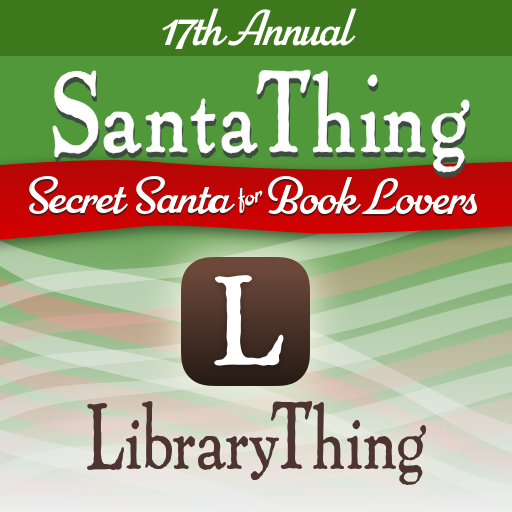We’ve compiled the most popular books in public libraries around the world, drawing on the thousands of libraries that use Syndetics Unbound to add covers, recommendations, summaries, series information and other information and features to their library catalogs.
This post covers the United States. Tomorrow we’ll be releasing the data for Australia, Canada and the UK.
First, here’s a “bar chart race” showing the top books changing over the year. You can also see and share the visualization over on Flourish.
To share this on social media, share this: https://public.flourish.studio/visualisation/16219720/
And here is a complete list of the top 100 books in US public librariees.
- Lessons in Chemistry by Bonnie Garmus
- Fourth Wing by Rebecca Yarros
- Demon Copperhead by Barbara Kingsolver
- Happy Place by Emily Henry
- It Ends with Us by Colleen Hoover
- Tomorrow, and Tomorrow, and Tomorrow by Gabrielle Zevin
- Spare by Prince Harry, Duke of Sussex
- Remarkably Bright Creatures by Shelby Van Pelt
- The Covenant of Water by Abraham Verghese
- It Starts with Us by Colleen Hoover
- Verity by Colleen Hoover
- Hello Beautiful by Ann Napolitano
- The Seven Husbands of Evelyn Hugo by Taylor Jenkins Reid
- A Court of Thorns and Roses by Sarah J. Maas
- Killers of the Flower Moon: The Osage Murders and the Birth of the FBI by David Grann
- Tom Lake by Ann Patchett
- Mad Honey by Jodi Picoult
- The Heaven and Earth Grocery Store by James McBride
- I’m Glad My Mom Died by Jennette McCurdy
- Atomic Habits: Tiny Changes, Remarkable Results: An Easy and Proven Way to Build Good Habits and Break Bad Ones by James Clear
- Harry Potter and the Philosopher’s Stone by J. K. Rowling
- The Wager: A Tale of Shipwreck, Mutiny, and Murder by David Grann
- The Housemaid by Freida McFadden
- The Five-Star Weekend by Elin Hilderbrand
- The House in the Pines by Ana Reyes
- The Last Thing He Told Me by Laura Dave
- Simply Lies by David Baldacci
- The Midnight Library by Matt Haig
- None of This Is True by Lisa Jewell
- The Ballad of Songbirds and Snakes by Suzanne Collins
- The Silent Patient by Alex Michaelides
- The Summer I Turned Pretty by Jenny Han
- The Exchange: After The Firm by John Grisham
- Horse by Geraldine Brooks
- All the Light We Cannot See by Anthony Doerr
- Someone Else’s Shoes by Jojo Moyes
- I Will Find You by Harlan Coben
- The Hunger Games by Suzanne Collins
- Pineapple Street by Jenny Jackson
- Identity by Nora Roberts
- Things We Never Got Over by Lucy Score
- Hang the Moon by Jeannette Walls
- The Maid by Nita Prose
- Storm Watch by C. J. Box
- Ugly Love by Colleen Hoover
- Holly by Stephen King
- The Nightingale by Kristin Hannah
- Book Lovers by Emily Henry
- The Boys from Biloxi by John Grisham
- Daisy Jones and The Six by Taylor Jenkins Reid
- A Good Girl’s Guide to Murder by Holly Jackson
- A Court of Mist and Fury by Sarah J. Maas
- The 23rd Midnight by James Patterson
- Homecoming by Kate Morton
- The Lightning Thief by Rick Riordan
- I Have Some Questions for You by Rebecca Makkai
- Where the Crawdads Sing by Delia Owens
- The Only One Left by Riley Sager
- Never Never: Part One by Colleen Hoover
- The Four Winds by Kristin Hannah
- Yellowface by R.F. Kuang
- Reminders of Him by Colleen Hoover
- Trust by Hernan Diaz
- Dog Man by Dav Pilkey
- Dark Angel by John Sandford
- Iron Flame by Rebecca Yarros
- Heart Bones by Colleen Hoover
- Outlive: The Science and Art of Longevity by Peter Attia
- The Thursday Murder Club by Richard Osman
- The Woman In Me by Britney Spears
- November 9 by Colleen Hoover
- The River We Remember by William Kent Krueger
- Fairy Tale by Stephen King
- Resurrection Walk by Michael Connelly
- Zero Days by Ruth Ware
- The Body Keeps The Score: Mind, Brain and Body in the Transformation of Trauma by Bessel A. van der Kolk
- The Secret by Lee Child
- Dirty Thirty by Janet Evanovich
- The House of Wolves by James Patterson
- The Personal Librarian by Marie Benedict
- Throne of Glass by Sarah J. Maas
- Friends, Lovers, and the Big Terrible Thing: A Memoir by Matthew Perry
- West with Giraffes by Lynda Rutledge
- A Man Called Ove by Fredrik Backman
- Just the Nicest Couple by Mary Kubica
- A World of Curiosities by Louise Penny
- Crying in H Mart: A Memoir by Michelle Zauner
- Our Missing Hearts by Celeste Ng
- Lady Tan’s Circle of Women by Lisa See
- Harry Potter and the Chamber of Secrets by J. K. Rowling
- Romantic Comedy by Curtis Sittenfeld
- How to Sell a Haunted House by Grady Hendrix
- Malibu Rising by Taylor Jenkins Reid
- The Measure by Nikki Erlick
- People We Meet on Vacation by Emily Henry
- A Flicker in the Dark by Stacy Willingham
- Countdown by James Patterson
- The Inheritance Games by Jennifer Lynn Barnes
- Beach Read by Emily Henry
- Wrong Place Wrong Time by Gillian McAllister
How Do We Know?
This data was collected by Syndetics Unbound. The search data is fully
anonymized the day it is collected.










 Publishers do things country-by-country. This month we have publishers who can send books to the US, Canada, the UK, Israel, Australia, France, Germany, and many more. Make sure to check the flags by each book to see if it can be sent to your country.
Publishers do things country-by-country. This month we have publishers who can send books to the US, Canada, the UK, Israel, Australia, France, Germany, and many more. Make sure to check the flags by each book to see if it can be sent to your country.













































































